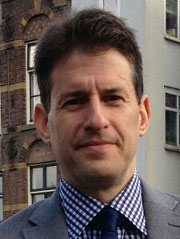This month we are delighted to have Branden Fitelson back for his second appearance on the program. The topic was some recent work he has been doing with Rachel Briggs, Fabrizio Cariani, and Kenny Easwaran on paradoxes of consistency. Click here to listen to our conversation.

Imagine you’re a scientist, and you publish a huge book presenting the results of your research over the past decade. You are exact in your methods, and to the best of your knowledge, everything you claim in the book is true. Nonetheless, you write the following in the preface: ‘Any mistakes in this book are mine and mine alone.’ Why think that it contains mistakes? Well, it almost certainly does; human beings are fallible, and every scientific book ever written contains some mistake or other. These things are difficult to write! But this raises an interesting paradox. On the one hand, if I were to list all the claims in the book, one by one, for each one, you would say that it was true. On the other, you readily acknowledge that there must be a mistake in there somewhere. It’s impossible for both of these things to be true: either every claim in the book is true, or at least one of the claims in the book is false. So what gives? Are you contradicting yourself?
Fitelson argues that paradoxes like these illustrate a conflict between two principles that philosophers have traditionally thought were central to rational inquiry: 1) believe what’s true, and 2) believe what your evidence supports. How so? Well, all the evidence you have about your research points to every single claim in the book being true, and all the evidence you have about the way human minds work points to there being at least one mistake. So by principle (2), you feel the pull to believe both of those things. But it’s necessarily true that there’s no way the book can be mistake-free while every single claim in it is correct. So by principle (1), you feel the pull to disbelieve at least one of those things.
The answer to the problem, Fitelson suggests, is that these claims are indeed jointly inconsistent, but that consistency is too stringent an ideal to follow in practice. The idea that our beliefs have to be consistent, he thinks, is based on the view that the goal of scientific inquiry is to paint a completely accurate picture of the world. The ideal we really follow is something else, which he calls coherence. The driving impulse behind coherence, in this special sense of the term, is to get as close as we possibly can to a completely accurate picture of the world. A set of claims is consistent just in case there is some possible situation in which they’re all true. A set of claims is coherent, on the other hand, just in case no other set of claims is better supported by our evidence, regardless of what situation we are actually in. Although we may think of ourselves as holding to the ideal of being consistent in our beliefs, Fitelson wants to argue that in fact, we instead hold ourselves to the ideal of being coherent, in this new more specific sense.
Tune in to hear our guest explain why this new notion of coherence is so philosophically important!
Matt Teichman
Leave a Reply